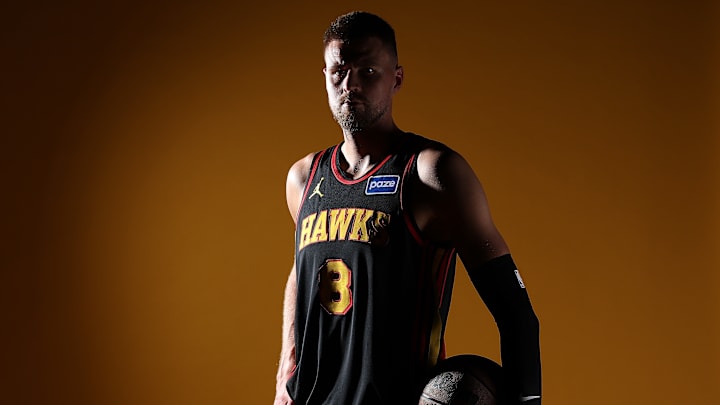The Atlanta Hawks are one of the worst rebounding teams in the league, with only the Washington Wizards and Miami Heat posting lower offensive and defensive rebounding rates.
Offensive rebounding has been the cultural fad that NBA coaches can’t seem to escape these days. After the spacing revolution of the 2010s, the Cleveland Cavaliers were pioneers in rediscovering the impact of crashing the glass on offense. They drafted Evan Mobley and traded for Jarrett Allen, assembling a frontcourt duo that resembled that of the early 2000s, only thinner.
The Houston Rockets took this concept to its logical conclusion last season with their monstrous frontcourt duo of Alperen Sengun and Steven Adams, who is making a case for one of the best offensive rebounders in modern history.
For the first time since 1980, the NBA’s offensive rebound rate has increased consistently over five years. This increased emphasis on the offensive glass has only magnified Atlanta’s catastrophic rebounding. They were never going to be a team that thrived on the glass with this lineup, but teams have been and will continue to be aggressive in exploiting their weak defensive rebounding (27th-ranked DREB%).
The Hawks will struggle to be consistent with poor rebounding
Rebounding, of course, is critical as it generates extra possessions for a team. What is underdiscussed, however, is the impact rebounding can have on a team’s resilience.
Take the Rockets as an example. Last season, they had a starting five featuring Sengun, Amen Thompson, Fred VanVleet, Dillon Brooks, and Jalen Green. This is a solid squad, no doubt, but it probably had the firepower of a Play-In team in a stacked Western Conference. But they were the best offensive rebounding team in the league by a wide margin, which allowed the Rockets to will their way to the two seed despite poor spacing, inconsistency from Jalen Green, and other hurdles.
The answer for the Hawks is simple: Onyeka Okongwu must start. With Zaccharie Risacher on the injury report after taking a horrific fall against the Phoenix Suns, the Hawks have the space to start Jalen Johnson, Okongwu, and Kristaps Porzingis together. This big-man-by-committee approach could prove effective, as all three players bring different skill sets to interior defense and defensive rebounding.
When Risacher returns, however, it’s time for Porzingis to power forward. Lineups featuring Porzingis without Okongwu have consistently been below average on defense and the glass this season, while essentially any lineup with Okongwu has been a positive. Porzingis’s minutes shouldn’t see a decline; he should instead be played in different lineups.
N’Faly Dante has seen essentially no minutes at the NBA level, but he was touted by many as the best big man in the G League last season. Why not give him some playing time and see if he can make an impact by fitting into the Hawks' stout, defensive-minded identity? He is a monster in the paint who gets his hands on everything in his absurd catch radius on defense. He currently cannot create any advantage on offense, but the Hawks can accommodate this, given the rest of the team's shot-creating talent.
At this point in his career, it is hard to play Porzingis at the five, even with an elite power forward companion in Jalen Johnson. The league is emphasizing strength in the frontcourt and rebounding, his two greatest weaknesses. The Hawks are going to have to make a move on the margins to produce a second NBA-ready center to play behind Okongwu if Dante is not ready. Without a reliable second center, Atlanta could be doomed in the playoffs.
